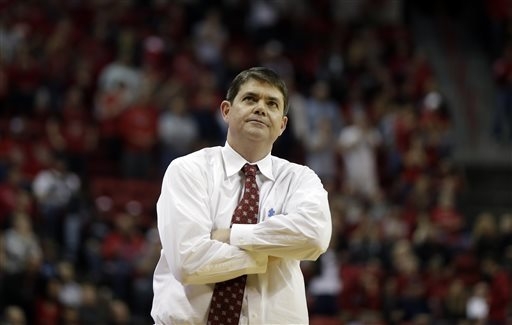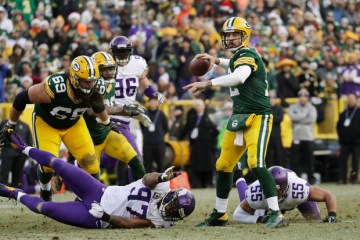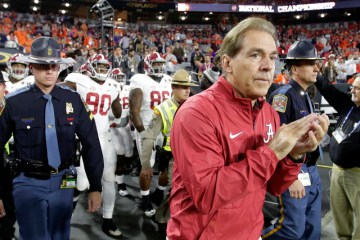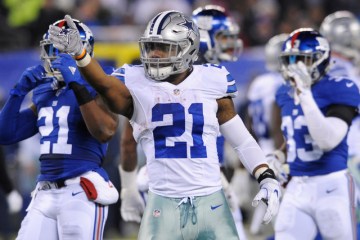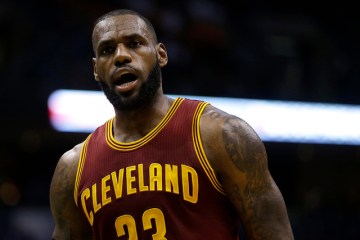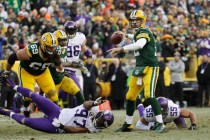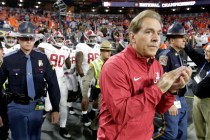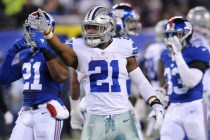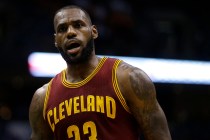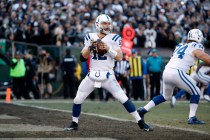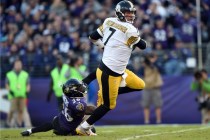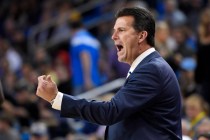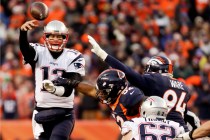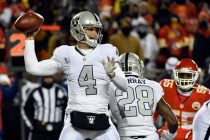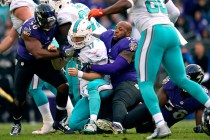Upon further review: Timing error a factor in Rebels’ loss at Boise State
It’s not a conspiracy that Oliver Stone would be inclined to turn into a documentary. It was two days too late, but some evidence surfaced to suggest that Deville Smith’s last shot should have beat the clock.
Smith raced up the court, weaved through defenders and released a 3-pointer from the top of the key as time expired to give UNLV an apparent 93-91 overtime victory over Boise State on Saturday.
Randy McCall, the lead official, signaled Smith’s shot was good before huddling with the other two officials for a replay review. McCall studied the video and reversed his decision on the floor, allowing the Broncos to celebrate a 91-90 win at Taco Bell Arena.
The red light on the backboard did not activate as time expired, but replays and a photo showed the ball was on Smith’s fingertips as the clock hit 0.0. But here’s the catch - Smith should have had an extra tenth of a second on the game’s final play.
Bobby Dibler, coordinator of officials for the Mountain West, Pac-12 and Western Athletic Conference, discovered a timing error when he reviewed the tape, according to Rebels coach Dave Rice, who spoke with Dibler on Monday.
Boise State took a one-point lead when Derrick Marks dribbled into the lane and rattled in a 10-foot jumper with 3.3 seconds remaining. By rule, the clock is supposed to stop when the entire ball clears the bottom of the net.
“(Dibler) reviewed the game, and after Marks scored the go-ahead basket, there should have been 3.4 seconds on the clock instead of 3.3,” Rice said. “He told me, without question, that after Marks’ basket we should have had 3.4 seconds when we inbounded the ball.”
That was relevant because, with another tenth of a second on the clock, Smith would have released the ball in time, and UNLV would have won.
“The extra tenth of a second was significant,” Rice said.
After the game, McCall explained to a reporter why the shot was disallowed:
“On the floor we counted the basket when the kid made the shot, and by rule, we are mandated to go and check the monitor,” McCall said. “There are three things we need to look for. The first criteria, does the ball beat double-zeros? The official clock is on top of the backboard. Did the ball beat double-zeros? If we don’t get that, we go to a red light on the backboard, and if we don’t get that we go to the horn. If we don’t anything that is absolutely correct that reverses the call, then the call stands.
“In this case, we got the clock to double-zeros, we walked it frame by frame to double-zeros, we stopped it at double-zeros, we went back and magnified where the ball was and the ball was on the shooters’ fingertips, so we had a reversal of the call by rule.”
McCall was asked how confident he was in his decision, and replied, “I’m 1,000 percent sure. I wouldn’t have done anything if I wasn’t sure. I’m 1,000 percent sure it was on his fingertips.”
McCall also was asked if the clock was stopped and started correctly after Marks’ basket. “Yes. Everything started on time,” he said.
Dibler offered a slightly different version of the story, though it was too late to help the Rebels’ cause.
Rice did not go berserk - or go Jim Boeheim - and rip the officials.
“Randy McCall is a quality official,” Rice said. “I still feel that way.”
Contact reporter Matt Youmans at myoumans@reviewjournal.com or 702-387-2907. Follow him on Twitter: @mattyoumans247.



